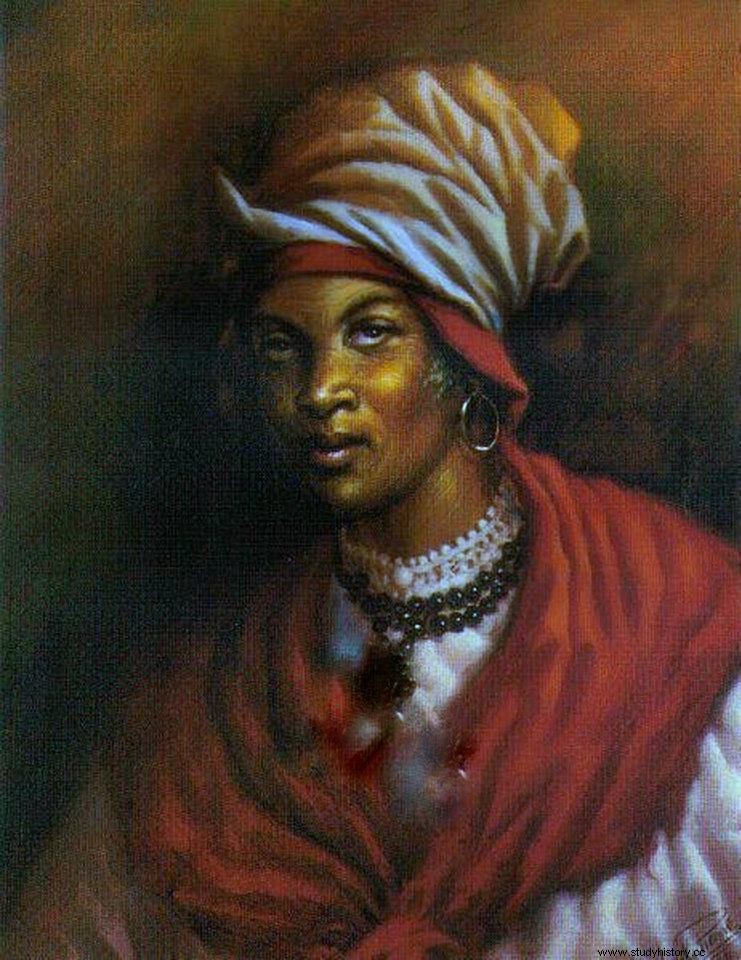Voodoo priestess and heroine of Haitian independence, Cécile Fatiman (18th – 19th centuries) is known for having presided over the famous Bois-Caiman ceremony.
Slave in Santo Domingo
 Daughter of an African slave and a Corsican reputed to be a prince, Cécile Fatiman is sold as a slave with her mother in Santo Domingo, then a French colony.
Daughter of an African slave and a Corsican reputed to be a prince, Cécile Fatiman is sold as a slave with her mother in Santo Domingo, then a French colony.
Her mother also has two sons, who disappear in the slave trade and whom Cécile will never see again. She is described as having green eyes and long silky hair.
Nothing is known of Cécile's existence until August 1791.
The Bois-Caïman ceremony
In August 1791, Dutty Boukman, a slave and houngan (a voodoo priest), organized a political and religious ceremony in Bois-Caïman. Mambo priestess, Cécile Fatiman presides at her side. Dressed in a white tunic, acting as if possessed by the goddess Erzulie, it is she who performs the sacrifice of a black pig; the blood of the animal is drunk by the participants in the ceremony to make them invincible, but also to bind them by an oath.
Dutty Boukman indeed prophesies that three slaves, Jean-François, Georges Biassou and Jeannot, will lead a revolt to free the slaves of Santo Domingo. Cécile and him urge the participants in the ceremony to rebel. The uprising broke out a week later, on the night of August 21 to 22, 1791; the slaves of five plantations revolted, burned the estates and massacred their owners, along with their families. In about ten days, nearly 1,000 whites were killed and 1,800 plantations destroyed.
The first collective revolt against slavery in Haiti, the Bois-Caiman ceremony is considered the starting point of the Haitian revolution, which will lead to its independence.
After the ceremony
In 1800, shortly before Haitian independence, Cécile Fatiman married Jean-Louis Pierrot. Fighting during the Haitian revolution, he will be prince of the temporary kingdom of Haiti and then president. Jean-Louis divorced in 1812 to marry Princess Louisa Geneviève Coidavid.
Cécile Fatiman would have lived in Cape Town until the age of 112. She is one of the four heroines of Haitian independence, along with Dédée Bazile, Catherine Flon and Sanité Belair.
